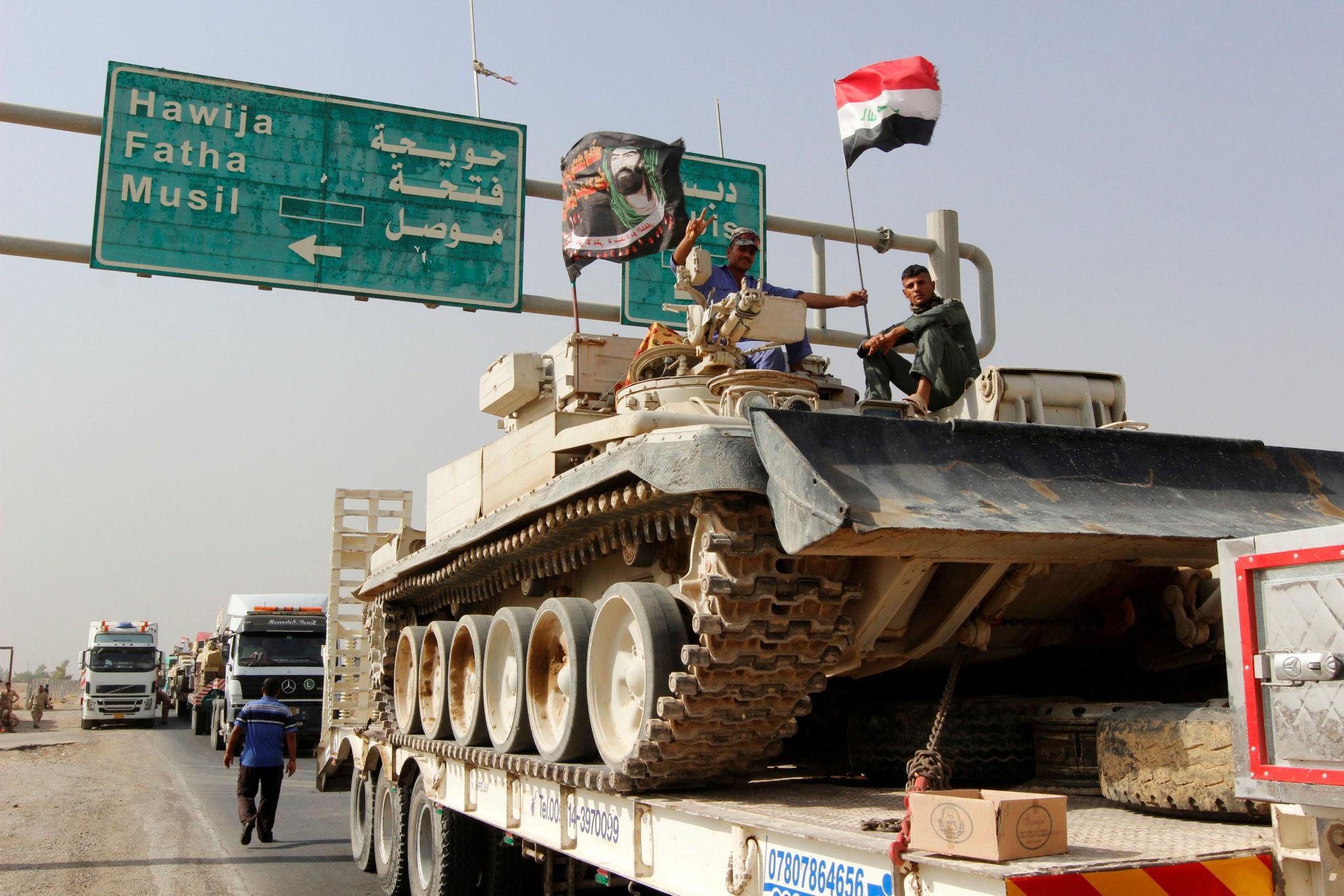The problem with ‘liberating’ Iraq from Isis is that some Iraqis are afraid of what comes next
Isis loyalists are not ideologically-driven foreign fighters, but rather pragmatic local tribes, leaders and citizens who seek the best possible power-sharing deal for themselves and their communities


On the streets of Baghdad, Erbil, and elsewhere, Iraqis across ethnic and sectarian lines watch in excitement as the army and the police, augmented by Shia paramilitaries, the Kurdistan Region’s peshmerga, and Sunni tribal fighters fight to retake Mosul, the second largest city, from the Islamic State.
The mood and expectations are high. Many Iraqis anticipate a swift military victory to remove Isis governance from the country. With these military successes, Prime Minister Haider al-Abadi is rebranding himself as a stronger leader. Contributing to this, he has taken away the narrative of divine victory that Isis successfully used to bolster its movement and to attract followers. Today, the group is on its back foot.
For many of the Isis leadership, military defeat in the short-term is unavoidable. In Iraq, the group has thus far been unwilling to engage in the protracted battles and sieges that we’ve seen in Syria, such as Kobane. Rather, in most Iraqi battles, Isis has retreated more easily. As such, it is likely that Isis will not put up a “fight to the death” just yet. This is becoming clear in the group’s own discourse, which now claims that defeat in Mosul is merely a “test” from God, rather than the end of the movement or even the Caliphate.

Instead, the senior leadership will go back underground, in a similar move to its predecessor al-Qaeda in Iraq following the 2008 civil war. The group will bet that the Iraqi political leadership, Shia, Kurd, and Sunni, will once again be unable to reach a political settlement on the future of Mosul or other Sunni Arab areas in the country. Under an assumption that Baghdad will not be able to legitimately represent the Sunnis in Mosul, Isis - in its current form or a future iteration - will re-emerge.
In the meantime, however, the group will stage an insurgency aimed at exacerbating sectarian tension, magnifying the crisis of trust and representation that the Sunni provinces have with the central government in Baghdad, and in general sowing the seeds of its re-emergence. Therefore the side instrumental to Isis’s future is its “citizens”, or supporters and members who have not been part of its leadership structure or participated in its gruesome violence.
At its core, Isis is an Iraqi organization formed following 2003, under various names, in direct reaction to Sunni shock and marginalisation from a Shia-Kurd dominated Baghdad. After expanding to Syria in 2011, the group took on a more global focus. In Iraq, however, its core focus has always stayed the same: a domestic one.
Many of its temporary loyalists are not ideologically-driven foreign fighters, as we’ve seen with other militant organizations such as al-Qaeda, but rather pragmatic local tribes, leaders and citizens who seek the best possible power-sharing deal for themselves and their communities. The Iraqi government’s policies towards them since Prime Minister Nouri al-Maliki’s second term drove many to take a chance with the Caliphate. They care less about the global brand and Isis-labelled attacks that take place in North Africa, Europe, or elsewhere. To them, support or complacency with Isis in Mosul was a better alternative to Maliki, whose centralization policies created great anxieties among the Sunni street.
However, the Caliphate’s failures in governance mean that these pragmatic members may now be willing to abandon the project.
The focus of a long lasting settlement, then, is not on Mosul but on Baghdad. The question is whether the Shia political groups that govern the country can overcome their current differences and take advantage of Iraqis’ high spirits to agree on a governance package that grants Iraq’s Sunnis an alternative to Isis, in greater autonomy and representation. This can serve as the deal to eliminate Isis support and complacency in the country.
If this political settlement is not reached now, it will be much more difficult once the military battle is over and all the sides contest the power vacuum that is likely to emerge in Mosul. A weak Baghdad, unable to come together on this issue, will again squander the imminent military victory – an outcome the Isis leadership is hoping for.
Join our commenting forum
Join thought-provoking conversations, follow other Independent readers and see their replies
Comments